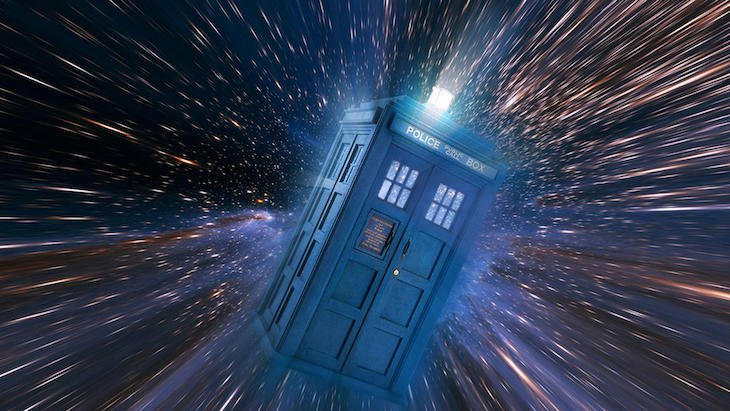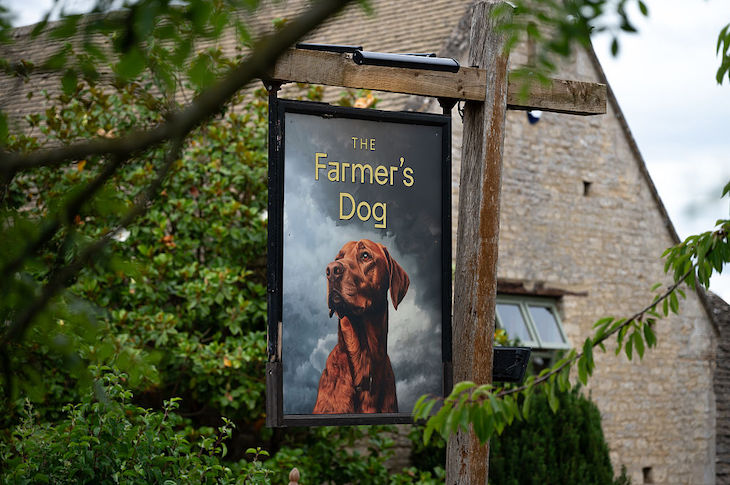Doctor Who, which started back in 1963, is often spoken about with a curious reverence as though it were something other than trash TV of varying quality. Unhealthy infatuation is not confined to the show’s viewers, as is obvious from the BBC’s recent announcement about the show’s new writers.
Pulp television can be joyful, unless it starts believing it’s art
“Scripting the best TV show of all time is truly a dream come true,” says Juno Dawson, who has just been announced as one of them. “I started watching when I was ten in Nigeria,” explains Inua Ellams, another new recruit; “The show invited me to dream, to live beyond my reality. Getting to write for the show felt like touching God,” he adds. It’s safe to say the writers and corporation alike are impressed with the show’s importance. It’s harder to say why.
There has been a flurry of interest in this announcement, as there always seems to be when it comes to news about Doctor Who. Much fuss, I understand, has been made over the years about the show’s “woke agenda” – uncertain pronouns, black, gay, or openly Scottish leads – but those complaints aren’t mine.
I am not an even tempered man, nor quick to calm, nor known for my tolerance. My ease of mind when it comes to Doctor Who comes from no deep resource of inner peace. Instead, it exists for the same reason I am untroubled about the direction of the Star Wars franchise, or the prospects for Meghan Markle’s podcast. I have a mortgage, a gently arthritic knee, and the knowledge that life will not last forever. Part of the art of living, I have long understood, lies in knowing what to ignore.
I don’t care about the content of Doctor Who, but somehow I do care that the BBC has become so clueless as to present it as Important Drama. Star Wars can do what it likes, but the BBC is our national broadcaster; a part of our culture and our country’s spirit. We all have skin in this game, even those of us who cancelled our licence fee in disgust at the Beeb’s coverage of Israel. I see Doctor Who being presented as a pinnacle of contemporary culture and feel that a vital point has been missed. The horror of Doctor Who isn’t Daleks or woke politics, it’s that these days we are asked to treat a mediocre kids’ TV show as a major artistic achievement.
Not everything need be high culture. Entertainment is low culture, and its pleasures are ephemeral. Low culture does not enrich history, but it does enrich life. But to do that, it must remain what it is: pomposity is fatal. Writing for Doctor Who may be many things, but “touching God” it is not.
Peter Capaldi’s newly-reincarnated doctor in 2014 spotted his ethnicity and exclaimed, with wonderful venom, “Oooh, that’s good! I’m Scottish! I can complain about things! I can really complain about things!” It was nicely light footed and self-mocking. If the first female, black, trans and gay leads entered with the same irreverence, I’d be delighted to hear. (Send your reports and opinions immediately, please, to my unmonitored email address.) I cannot speak from experience, since I ceased noticing the show once my kids stopped putting it on. I’ve no objection to watching, but the hours keep offering up richer alternatives, and time is limited. Life piled on life were all too little, as the doctor might say, and of one to me little remains.
People make their own choices, and facing up to reality has drawbacks, but the BBC once defended the idea that maturity was desirable. Today, it offers a view of life in which intellectual seriousness is belittled as pretentious fraud. The effect is not only to diminish what matters most in life, but to suck the fun out of what doesn’t. “The best TV show of all time”? Light entertainment is wonderful stuff, but it destroys its own value the moment it starts taking itself too seriously.
One evening, after an afternoon of telly, our late son – seven or so at the time – wandered into the kitchen. “Mummy, daddy, what’s female sexual appetite,” he asked, “and what does it have to do with handbrake turns?” Kids’ TV, I thought, has changed.
Shaun the Sheep, Timmy Time, Horrible Histories: the BBC made or broadcast quality kids’ TV. For all I know, it still does. Deadly 60 contained footage up there with the best of David Attenborough and added in more facts per minute (watch both enough times, with a child on your lap, and you keep count). Operation Ouch! was the best thing the Van Tulleken twins ever did; they are brilliant at being silly, talentless at being serious.
Up until the day of his unexpected question, our son’s viewing had been under our supervision, but that day a friend visited and had chosen their own favourite. Good stuff, Top Gear, it turned out. Even though it wasn’t made for children, it was accessible because it had no pretension to seriousness, only a desire to entertain. Alongside our son we derived great pleasure from watching three men demonstrate the real art of making a fool of yourself for the amusement of others.
It’s dangerous, in life, to forget what doesn’t matter very much: you lose the chance to remember what does. The glory of Top Gear was that it made fun of itself because it recognised that life makes fun of us all. Growing older has drawbacks, but what it offers in return is the chance to grow up. Adolescents may dream that a handbrake turn or a TARDIS means something profound, but grown-ups – and the BBC – should not. Everything is what it is, and not some other thing. Pulp television can be joyful, unless it starts believing it’s art.







Comments